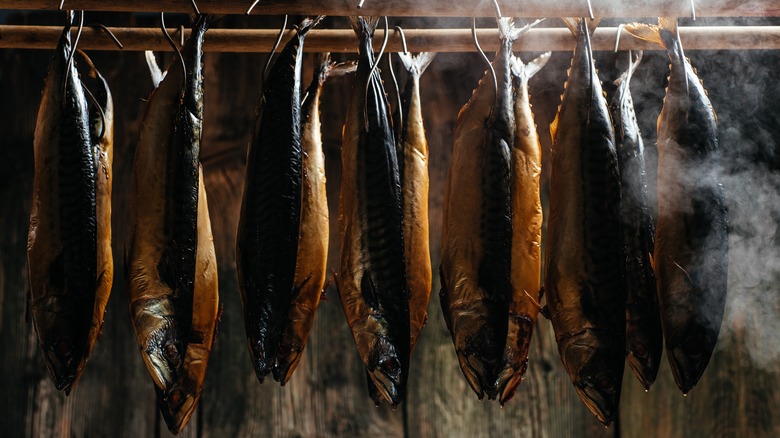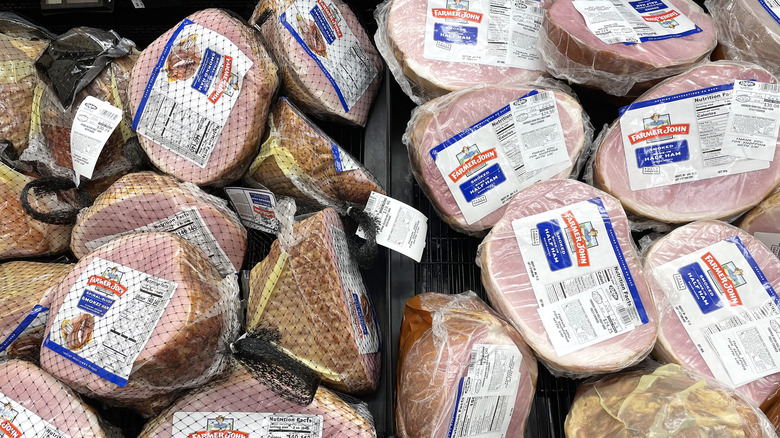The Scientific Reason Smoke Preserves Food
The process of smoking meat for food preservation goes back to prehistoric times. Smoking was initially used as a preservation method, but over time the technique evolved into an art form.
According to Livestrong, the process of smoking involves using a combination of smoke and salt to preserve meat. There are a few different reasons why smoking helps preserve meat. The heat kills microbes and chemicals found in smoke act as preservatives. According to Science Direct, these chemicals collect on the surface of the meat and help prevent the development of microorganisms. The smoke also helps dry the meat, a process that is accelerated by the addition of salt.
Not all smoking processes are created equal, though. SBS explains that there are two methods of smoking meat: hot smoking and cold smoking. Cold smoking places the meat in a room temperature, smoke-filled chamber. It's a good idea to cure meat with salt before cold smoking, and cold smoked meat should be cooked before being consumed.
Hot smoking uses warmer temperatures than the cold smoking method, but the temperatures are cooler than you'd typically use to cook meat. Since hot smoking still uses cooler temperatures, it's important to smoke the meat for a long time so it's thoroughly cooked.
You'll still need additional steps if you want to thoroughly dry the meat and produce jerky, though. According to Washington State University, this process involves using an oven or dehydrator to strip the meat of moisture.
How long does smoked meat last?
According to Furious Grill, smoked meat won't last indefinitely. If you're careful and take additional precautions to cure the meat, smoked meat can last for a few weeks in the refrigerator. However, people with sensitive immune systems should avoid home-smoked meats, and if you smoke your meat without curing or drying it, it'll only last a few days in the fridge.
You should be especially cautious of home-smoked food since it's difficult to replicate the sterile conditions of industrial facilities in your own kitchen. According to Science Direct, high-quality meat prepared under sanitary conditions will provide the best results in terms of preservation. Meat should be smoked fresh and carefully cleaned as the first step in the process. And smoking alone won't preserve meat — for best results, it should be salted and dried, too. As Washington State University explains, salting and drying processes help preserve the meat by reducing the moisture in the meat. However, without the chemical analysis available at industrial facilities, it's hard to tell if the meat has been properly salted. Improperly prepared meat has resulted in outbreaks of food-bourn illnesses.
As with other methods of food preservation, like canning or drying fruits, always exercise caution — especially when attempting the process at home.

